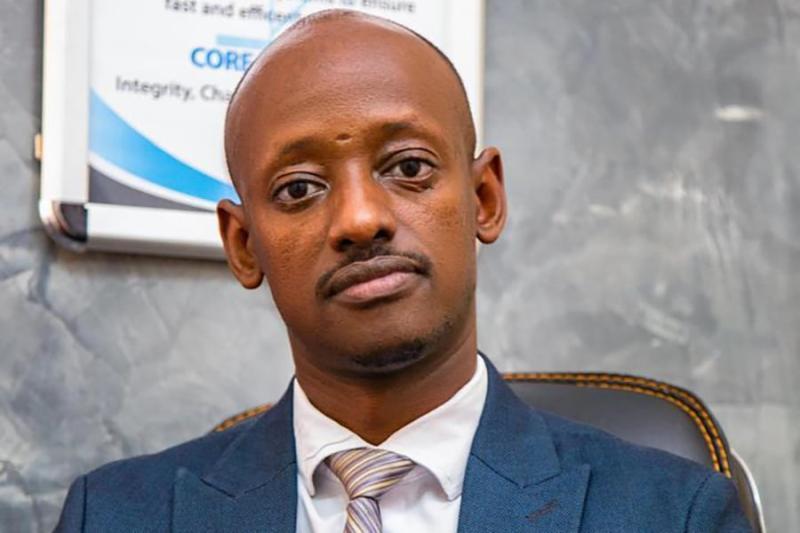Africa-Press – Uganda. I meet many fresh graduates who step out of university gates with degrees polished, gowns still smelling of celebration, and expectations taller than the new MTN towers.
They believe that because they’ve studied hard, a corner office with air conditioning and a salary that can fuel a Vitz for the month should be waiting somewhere in Industrial Area.
But reality is less forgiving and far more demanding. Uganda’s job market is like a crowded taxi park at 8 a.m.—everyone wants a seat, but few are ready to push, improvise, or even walk a bit to get there. We have thousands of graduates chasing hundreds of jobs.
And yet, when you talk to employers—real employers, not the ones on X—they’ll tell you they’re starving for people who are willing to learn.
Let’s be honest: your degree isn’t a magic key anymore. It’s a ticket to the starting line. What separates those who move forward is attitude, not academic papers.
The difference between the one who’s employed and the one who’s endlessly “job-hunting” often boils down to who was willing to start small, volunteer, and prove their worth before demanding a paycheck.
I’ve seen this firsthand in my own companies—both here and in Zambia. The ones who come in humble, eager to learn, asking, “Can I help?” rather than “How much will you pay?”—those are the ones who grow fast. They’re the ones who turn internship into employment and employment into leadership.
Now, some quick reality checks to keep our feet on the ground. In January 2025, Makerere graduated 13,658 students in one week—143 PhDs, 1,813 Masters, and 11,454 Bachelors.
That’s one university, one ceremony. In December 2024, Kyambogo graduated 11,721 students, its biggest cohort yet. Uganda Christian University’s two parts of the 25th graduation in 2024 saw about 1,189 graduands at the main ceremony alone. Mbarara University of Science & Technology conferred 1,615 awards in October 2024.
And Gulu University’s January 2025 ceremony passed out roughly 1,500. Gulu University Stack those numbers over a few years and you’ll understand why simply “having a degree” doesn’t move the needle.
Meanwhile, the Uganda Bureau of Statistics’ latest census report pegs unemployment at about 12.3% nationwide, with over four million youth (15–24) not in employment, education, or training. That’s a long queue. Uganda Bureau of Statistics
Given those odds, waiting for a perfect, paying role from day one is like waiting for a taxi to drive straight into your sitting room. Yes, Kampala is expensive. Rent can chew a small cow’s worth of money monthly.
Transport, food—it’s all costly. But university wasn’t just for passing exams. It was also for building friendships and networks that can host or help you when you need to volunteer or intern.
I’ve met brilliant young people housed by friends in Kireka, Kisaasi, and Makindye as they searched for opportunities. Some cooked together, shared taxis, and rotated one decent pair of shoes for interviews.
A few months later, they had jobs because they chose effort over ego. They volunteered, showed up, and stayed consistent even when no one was clapping.
Meanwhile, others are still waiting for a connection. In Uganda, we call it gamba nogu—“talk to your guy.” The problem is, your “guy” might never pick up.
And by the time you get a real opportunity, employers will ask the toughest question: “So, what have you been doing since you graduated?” Try answering that after three years of Netflix and frustration.
There’s no convincing way to explain “I was waiting for someone to help me.” It’s harsh, but that’s the truth. Waiting doesn’t grow you; working even without pay sometimes does.
One of our interns at Jonakee once walked to the office for two weeks straight because he couldn’t afford transport. But he showed up every single day. We noticed. Three months later, he wasn’t just employed he was leading a team.
That’s how doors open in the real world: not by pleading, but by proving. I also know of a lady who volunteered at a small financial institution in Nakawa, simply helping with customer calls and documentation.
She wasn’t paid a coin for the first three months. By month four, they couldn’t imagine operating without her. Today she manages a branch.
Her friends laughed at her then, but she’s the one laughing now—on her way to buy land in Gayaza.
Graduates, your 20s are not for comfort; they’re for construction. The foundation you lay now will hold the house you’ll live in later.
If your dream job isn’t calling yet, go make yourself useful somewhere. Offer your skills. Learn Excel properly and write emails like a professional.
Improve your English and Luganda customer-care tone. Show up where work is happening—NGOs, SACCOs, small firms, tech hubs, the LC1 office, your church admin, a boda-stage savings group then make yourself indispensable.
Become the person who solves problems before being told. That’s how you get written into a payroll.
Every employer I know whether in Uganda or Zambia wants the same thing: initiative before incentives; dependability before decorations.
When thousands are graduating from just a handful of universities each year—Makerere, Kyambogo, UCU, MUST, Gulu—and the economy is still tightening its belt, the winning play isn’t waiting; it’s working.
So, to every graduate waiting for luck to strike hear this from someone who hires people every week: luck follows labor. The world isn’t unfair; it’s just uninterested in those who won’t stretch.
Don’t sit home complaining about unemployment when you could be out creating employability. And if you ever doubt that effort pays, remember this every great person you admire started by showing up when they weren’t being paid.
They gave value before they got value back. So go ahead, send that email, show up for that interview, take that volunteer role. Because in the end, the world doesn’t reward those who wait; it rewards those who work.
Source: Nilepost News
For More News And Analysis About Uganda Follow Africa-Press






